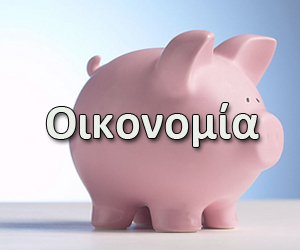
Russia's flawed elections
from Tanya Lokshina, Senior Russia Researcher - Human Rights Watch
There are some posters and banners in the streets of the Kremlin's United Russia party, urging voters to come out and vote; and Vladimir Zhirinovsky of the Liberal Democratic Party of Russia (don’t let the name mislead you!) promising to stand up for the interests of ethnic Russians; and televised debates between party representatives. But not much else: no election ads in people's mailboxes; no heated political debates; no election-related discussions over drinks in smoky cafes and overcrowded kitchens.
The reason for the indifference is plain. These elections lack competition and suspense. President Dmitry Medvedev’s revelation in September that he would lead United Russia in the parliamentary vote, while prime minister Vladimir Putin would run for the Russian presidency in 2012, left no questions unanswered for the Russian public. For almost everyone in the country, Putin’s return to the presidency and United Russia’s continued dominance in the Duma became a foregone conclusion.
Throughout the past decade, international monitoring organisations have increasingly criticised the fairness of Russian elections. They found that the ruling party has benefited from disproportionately favourable media coverage and excessive government resources, and that political campaigns were not conducted under competitive conditions.
Moreover, the authorities have failed to register any of the new opposition parties founded in 2010 - Parnas, Other Russia, RotFront, Motherland-Common Sense. It's true that seven parties are competing in the election, but most analysts agree that only those four that are already represented in the Duma stand a chance of meeting the 7% threshold (the second highest in Europe) and again win seats - and that only one of these, the Communist Party, appears not to be Kremlin-controlled.
After United Russia won a constitutional majority in the Duma election in 2007, it pushed through key changes to the constitution, such as lengthening the parliament’s term from four to five years and the presidential term from four to six years. The fact that Putin has already been president for eight years, and has remained close to the seat of power during Medvedev’s term in office, raises inevitable parallels with Leonid Brezhnev’s epoch.
When I talk to western media and policy-makers about the lack of pluralism in Russia, they often argue that Russians want Putin because of his strong personality and populist machismo. But there are 140 million Russians, and as one of them I can assure you that they have different views. A growing number of Russians are unhappy with more than a decade of so-called "soft" authoritarianism and want a functional system of checks and balances on the powers that be.
When these Russians consider that their country is facing six or even twelve more years of Putin, they are frustrated and concerned - because this means stagnation, that much-needed political and economic reform to create more public accountability is unlikely, that the lack of transparency will continue, and that there will be no end to corruption and to impunity for human-rights violations. The current opinion-polls also suggest that many Russians do not really support Putin but are paralysed by a sort of apathy, grounded in awareness that they have no real say."
The Organisation for Security and Cooperation in Europe (OSCE), the Council of Europe, and the European Union have all expressed concern at the failure to register new parties, while the European Court of Human Rights concluded that Russian party-registration requirements were unmanageable for small parties.
Russian officials have dismissed these criticisms, accusing the west of double standards. Instead of cowering, Russia’s partners should stand firm on what ingredients are needed for a fair and competitive election. They need to support the civil society that is trying to create the transparency and public accountability that elections in Russia have so far failed to deliver.
read also: Shrugging for Putin
and in greek language: Πληθαίνουν οι καταγγελίες για χειραγώγηση των εκλογών στην Ρωσία
Τελευταίες Ειδήσεις - Latest News
05 Δεκεμβρίου 2011, 20:49
Μέρκελ και Σαρκοζί δίνουν "άφεση" στους ιδιώτες ομολογιούχους
05 Δεκεμβρίου 2011, 20:43
Νέο "ενδιαφέρον" για την ονομασία των Σκοπίων από τον Μάθιου Νίμιτς
05 Δεκεμβρίου 2011, 20:35
Η θέση της ΝΔ για την απόφαση της Χάγης
05 Δεκεμβρίου 2011, 20:25
Επτά άμαχοι σκοτώθηκαν και δεκάδες φοιτητές συνελήφθησαν στην Συρία
05 Δεκεμβρίου 2011, 19:50
Ενέκρινε την έκτη δόση προς την Ελλάδα το ΔΝΤ
05 Δεκεμβρίου 2011, 19:00
Μπάιτεν: Στεκόμαστε δίπλα σας αλληλέγγυοι
05 Δεκεμβρίου 2011, 18:15
Απογόητευση από το πόρισμα του ΟΟΣΑ για την παγκόσμια φτώχεια
05 Δεκεμβρίου 2011, 17:57
Σχηματισμός νέας κυβέρνησης στο Βέλγιο
05 Δεκεμβρίου 2011, 17:32
Λύγισε η Ιταλίδα υπουργός Φορνέρο
05 Δεκεμβρίου 2011, 17:25
Το Υπουργείο Παιδείας για την εφεδρεία στους εκπαιδευτικούς

